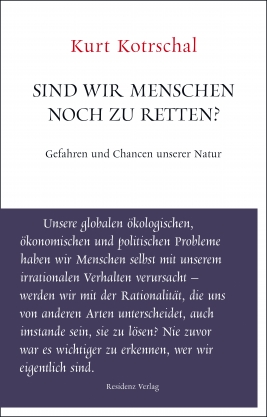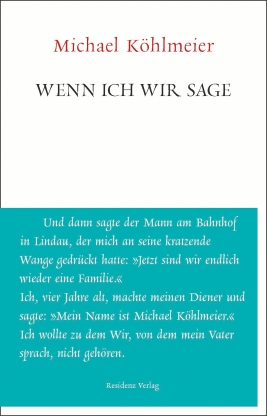
Kurt Kotrschal - Is there hope for us humans?
The dangers and opportunities of our nature
Behavioural scientist Kurt Kotrschal's diagnosis is a wake-up call: Only if we change, will we survive.
Human behaviour is driving our biosphere into the multiple crisis it is in today. But what is the evolutionary basis of human behaviour? And how much room for manoeuvre do we still have? The primary feature that distinguishes humans from other species is our rational potential, yet our everyday behaviour is shaped by irrational decisions. In view of the global survival problems we face, numerous and in some instances radical changes in behaviour are called for, both at an individual and a societal level. But most of all, we need a realistic perception of human nature. Never has it been more important to understand who we really are.
Book details
Aus der Reihe „Unruhe bewahren“. In Kooperation mit der Akademie Graz, dem Literaturhaus Graz und DIE PRESSE.192 pages
format:140 x 220
ISBN: 9783701735105
Release date: 14.04.2020
License rights
- World rights available






